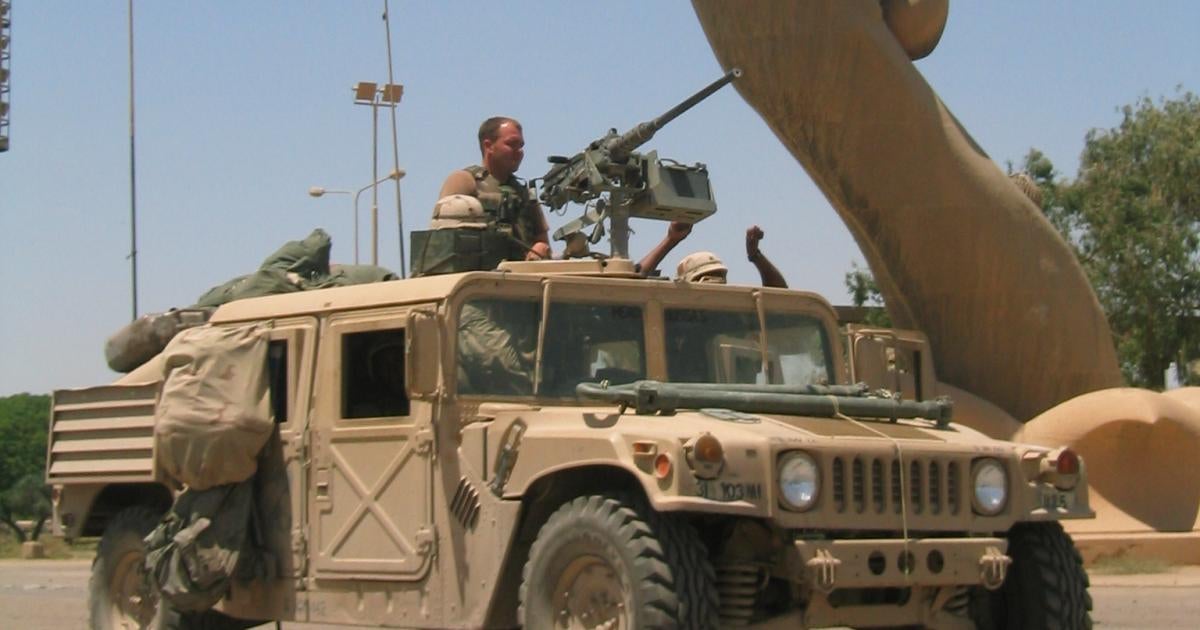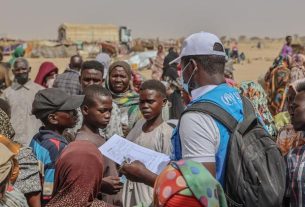In the lead up to the US-led invasion of Iraq on March 20, 2003, proponents of the war spoke of the Iraqi people as helpless victims of a dictatorial regime. Yet the Iraqi people paid the heaviest price of the invasion. Almost half a million people lost their lives, millions lost homes, and countless civilians suffered abuses by all parties to the conflict.
Then and now, Human Rights Watch urged parties to the conflict to compensate victims and hold perpetrators accountable, but impunity prevails.
Soon after military operations began, evidence emerged of coalition laws of war violations. Coalition forces, including the United States and United Kingdom, dropped thousands of inherently indiscriminate cluster munitions in populated areas and conducted indiscriminate airstrikes that killed civilians.
US forces also subjected detainees in Abu Ghraib and other detention sites to torture, including sexual abuse and humiliation; wrongly killed protesters; and hired private military contractors who killed and injured dozens of civilians. UK forces have been responsible for abuses of hundreds of Iraqi detainees, including torture and unlawful killings.
The insurgency that followed the US invasion not only attacked US-led forces but also Iraqi civilians. Al-Qaeda in Iraq swiftly ascended and ultimately morphed into the Islamic State (ISIS). In 2014, ISIS captured and imposed brutal rule over large swaths of Iraq and neighboring Syria, perpetrating war crimes and crimes against humanity, and prompting a second US-led invasion that resulted in massive, routinely undercounted civilian casualties.
In October 2019, thousands of Iraqis took to the streets, some demanding an overhaul of the highly contested political system established after the 2003 invasion. In response, authorities chose repression over reform, killing more than 600 protestors, and disappearing hundreds more.
For Iraqis, it’s long past time for meaningful commitments to human rights reform and accountability.
The US and UK should carry out credible, independent investigations into the civilian harm their military forces caused and provide redress. A new US Defense Department plan to investigate such civilian casualty incidents is not authorized to look at past cases; this is an unacceptable gap. The UK government needs to stop interfering with justice as it has done so often in the past when its armed forces have been accused of abuses.
The Iraqi government also must protect free expression and assembly so Iraqis can voice grievances and debate the future of their country. Authorities should prioritize justice sector reforms, overhaul abusive legislation and judicial practices, and hold perpetrators of rights abuse accountable. They should incorporate war crimes, crimes against humanity, and genocide offenses into the country’s criminal code and join the International Criminal Court.
This is the only way to address both the problems of Iraq’s past, including the legacies of the US-led invasion, as well as the challenges of its future.



